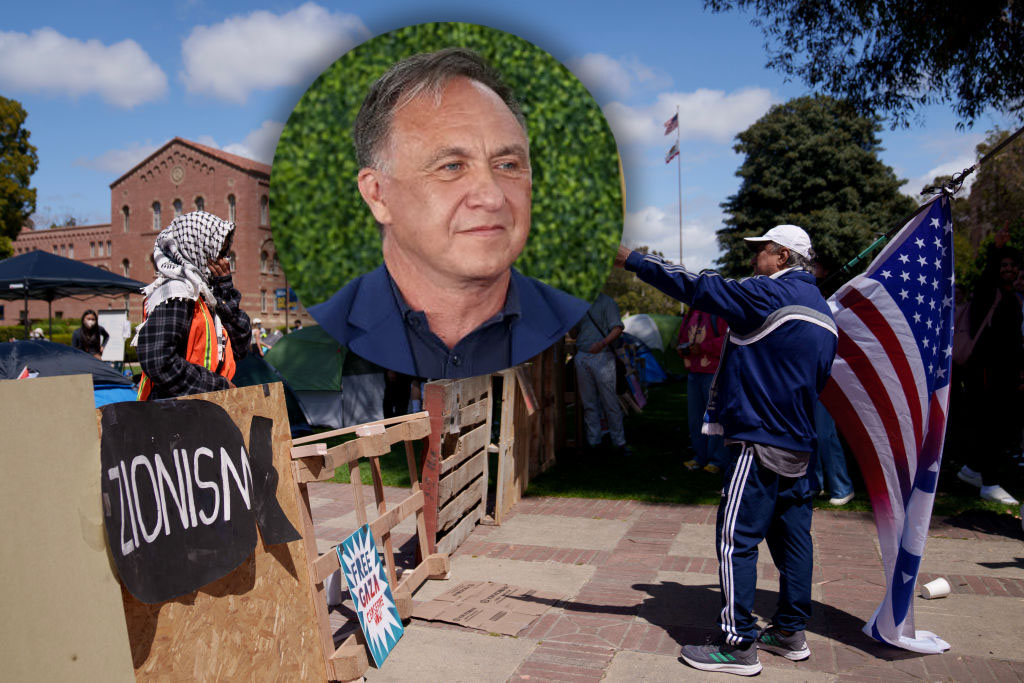Like stills from a film noir, the black-and-white photographs of a 17-year-old boy named Herschel Grynszpan that have come down to us — police mug shots, newspaper photos, a souvenir snapshot taken at a Paris street fair — capture the various faces that he presented to the public during the fall of 1938, when he boiled up out of a noisy Jewish neighborhood in a backwater of Paris and demanded the attention of the astonished world.
L’affaire Grynszpan, as his case came to be known, starts with a single act of violence behind the locked gates of the German embassy in Paris on November 7, 1938, when he fired five shots at a Nazi diplomat. Nowadays, when Grynszpan is remembered at all, it is because the Nazis seized upon the assassination as a pretext for Kristallnacht, the pogrom that marked the sudden and ominous escalation in Hitler’s war against the Jews. But it is also a story replete with shock and scandal, mystery and perplexity.
Precisely what transpired inside the ornate German embassy in Paris on that day remains a puzzlement, but even more baffling is the black hole of history into which Grynszpan has fallen since the end of World War II. Herschel Grynszpan was briefly famous, and it was his fame — or, as the Nazis saw it, his infamy — that accounts for the trove of historical detail that is available to us today. We know how much he weighed, how tall he was, and how much money his family received in welfare payments because he was investigated by both French and German police officers, and he was examined by physicians, psychiatrists and social workers in the service of the French criminal courts and later by their counterparts in Nazi Germany, all in the greatest and most intimate detail. Grynszpan, still only an adolescent, was questioned by the famously efficient interrogators of the Gestapo and even by Adolf Eichmann, a self-styled expert on Jewish affairs in the Nazi bureaucracy and one of the masterminds of the Final Solution.
Today, however, Grynszpan remains a mystery, an irony if only because Grynszpan was among the most famous inmates of the Nazi concentration camp system. Perhaps the most vexing aspect of the Grynszpan case is the fact that he has never been embraced as the heroic figure he earnestly sought to be. His fellow Jews, suffering through the catastrophic aftermath of his act of protest at the German embassy in Paris, “generally disapproved of it as useless, dangerous and a great disservice to Jews everywhere,” according to Gerald Schwab, one of the principal investigators of the Grynszpan case. One of Grynszpan’s own attorneys, richly paid to defend him in the French courts, dismissed him privately as “that absurd little Jew.” Hannah Arendt pronounced him to be “a psychopath” and, even more shockingly, accused him of serving as an agent of the Gestapo. Jewish armed resistance against Nazi Germany is much studied and celebrated, but Grynszpan remains without honor even among the people whose avenger he imagined himself to be.
The effacement of Herschel Grynszpan, who wrote and spoke so ardently about his deed to lawyers, judges, politicians and reporters in the months and years following his arrest, would have broken the boy’s heart. His prison journals, which were carefully preserved and studied by both French and German authorities, reveal that the lonely and frightened adolescent yearned not merely for attention but for a place of consequence in the saga of the Jewish people. “He thought the only end to isolation was to reach the point where he was no longer separated from the true struggles that went on around him,” writes Don DeLillo of Lee Harvey Oswald in the novel “Libra,” but the same words surely apply to Grynszpan. “The name we give to this point is history.”
As we observe the 75th anniversary of Kristallnacht, we ought to pause and recall the 17-year-old boy who was among the very first Jews to fire a weapon in defense of the Jewish people during those dark years. “For three lines in history that will be written about the youth who fought and did not go like sheep to the slaughter,” insisted the martyred ghetto fighter Dolek Liebeskind, “it is even worth dying.” Yet the search to find examples of Jewish resistance has failed to acknowledge the exploits of Herschel Grynszpan.
At the end of the short, strange and turbulent life of Herschel Grynszpan — a life tainted by rumors of sexual scandal for which Herschel himself was the source — we are left with two ineradicable facts. Only weeks after the prime ministers of England and France had trembled before Hitler in Munich, Grynszpan walked into the German embassy in Paris and shot a Nazi diplomat, an “act of counter-violence” in explicit protest against Hitler’s persecution of the Jews. And, three years later, the same young man, alone and abandoned in a Gestapo cell in Berlin, succeeded in denying his Nazi captors the opportunity to justify the mass murder of the Jewish people in the show trial they had planned for him.
For these two acts of courage and defiance, the young man paid with his life. If Jewish armed resistance deserves more than “three lines in history,” then we are obliged to remember Herschel Grynszpan and to regard him as the hero he sought to be.
Jonathan Kirsch is the book editor of the Jewish Journal. Excerpted from “The Short, Strange Life of Herschel Grynszpan: A Boy Avenger, a Nazi Diplomat, and a Murder in Paris” by Jonathan Kirsch. Copyright © 2013 by Jonathan Kirsch. With permission of the publisher, Liveright Publishing Corp.






















 More news and opinions than at a Shabbat dinner, right in your inbox.
More news and opinions than at a Shabbat dinner, right in your inbox.